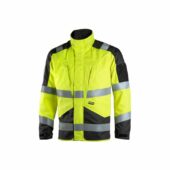Introduction:
In the global corporate context of today, network transparency and decision-making improvement made possible by supply chain mapping (SCM) is crucial. Understanding the complicated character of supply chains helps businesses to include stakeholders, guarantee compliance, and reduce risk. This tutorial provides understanding on how to get started and emphasises the main advantages of supply chain mapping.
Enhancing Supply Chain Transparency for Better Understanding
Consumers and stakeholders need openness, therefore SCM provides a deep dive into the supply chain. Supply chain transparency gives firms a deep insight of their operations and product manufacturing processes, making it a need. This allows you to better monitor, analyse, and regulate your activities, allowing you more supervision into:
- Minimising risk
- ESG compliance
- Complete data analysis
- Product tracking
- Better stakeholder relations
1. Risk Reduction through supply chain mapping
Managers can track recalls, shortages, and compliance issues with improved supply chain visibility. Supply chain managers can foresee and respond to network changes by identifying supply chain interruptions in real time with complete transparency.
SCM shows the whole supply chain, helping firms discover weaknesses and risks. This might include single-source dependency, political instability, dangerous working conditions, or finding suppliers in natural disaster-prone places. Managers may anticipate these risks, create contingency plans, and mitigate them by diversifying suppliers or changing supply routes using a thoroughly planned supply chain.
2. Due Diliguity and ESG Compliance
As rules change, companies have to keep network-wide ESG compliant. Although it takes effort, mapping a supply chain helps to simplify due diligence by exposing supplier practices. This allows you to follow ethical and legal guidelines at all levels and help to prevent legal fines and costs.
By use of SCM, managers may foresee issues of labour, environmental, and international standards and laws compliance. Determining when and where to do supplier audits to ensure compliance and avoid problems depends on knowing your supply chain.
3. Data Gathering and Analysis
Supply chain managers need SCM data. It illuminates supplier performance, logistical efficiency, and cost management. From material sourcing to logistics partner selection, this data may inform strategy.
Predictive analytics in advanced SCM technologies help managers foresee trends, demand spikes, and supply interruptions. These predicted insights aid strategic planning and market competitiveness.
4. Product Trackability
SCM shows the origin and authenticity of products in industries like cotton and luxury goods. Traceability is necessary for regulatory compliance, consumer confidence, and quality control.
Tracing your products’ origins ensures sustainable harvesting and refining. Validating sustainable processes helps boost brand reputation and comply with environmental standards.
Product traceability provides for speedy and focused recall actions, which might take longer when organisations don’t know the material origins. Companies may manage recalls effectively and save financial and reputational harm by knowing product origins and distribution.
5. Improved Stakeholder Relations in supply chain mapping
Transparency and due diligence improve consumer and stakeholder communication. Customers trust companies when they can see where their items originate from and how they got there.
Conclusion:
Supply chain mapping is crucial for modern businesses aiming to boost efficiency, manage risks, and ensure compliance. By providing a clear view of the entire supply chain, it helps companies improve transparency, track products, gather essential data, and maintain better stakeholder relationships. Embracing supply chain mapping not only enhances decision-making and operational efficiency but also supports sustainable and responsible business practices.

















